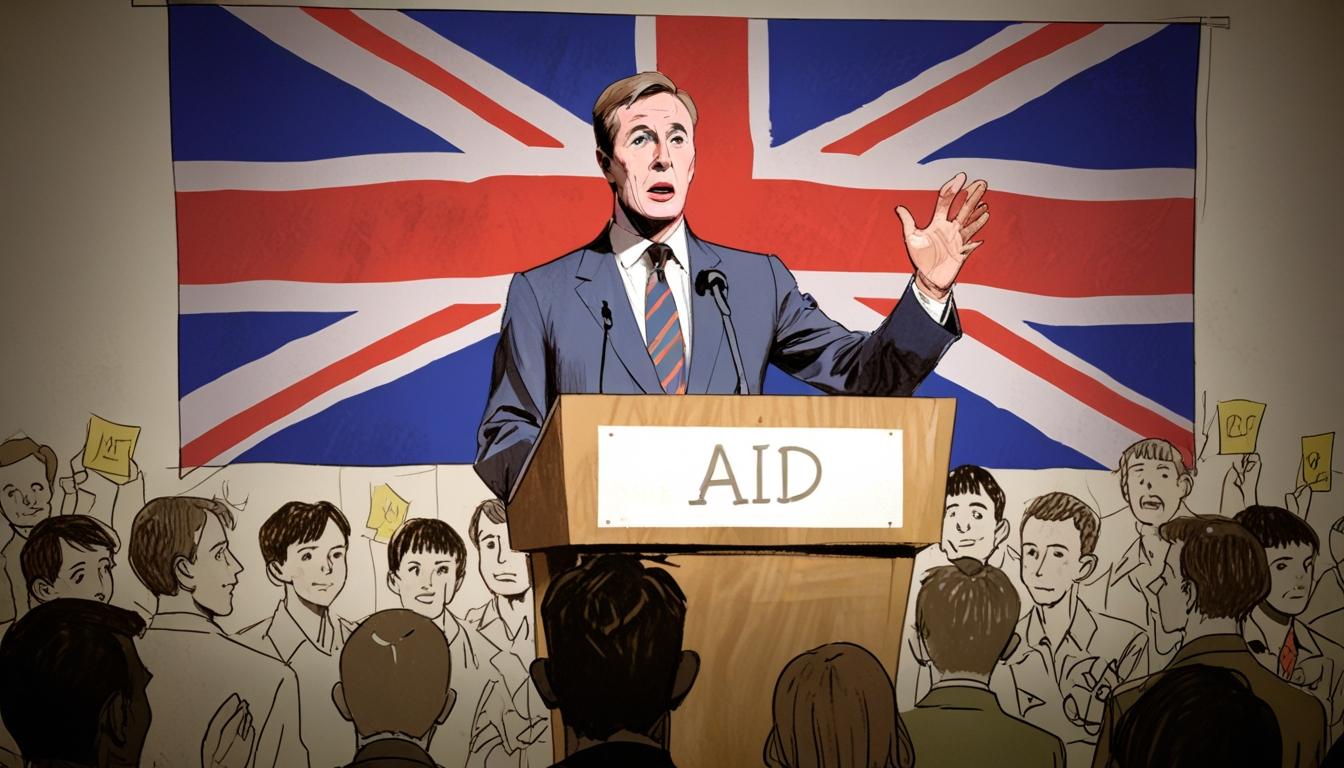Britain's approach to international aid is plummeting into alarming territory as the newly installed Labour government contemplates drastic spending cuts and a worrying shift in strategy. When Baroness Jenny Chapman, the new development minister, faces Parliament’s international development committee, she is set to deliver the disheartening news that the era of viewing the UK as a beacon of global philanthropy is over. Instead of prioritizing humanitarian assistance, the government's focus is grotesquely turning towards exporting British expertise, overlooking the immediate needs of vulnerable populations.
The proposed cuts come amid a broader budgetary review that threatens to slash the UK's aid spending from 0.5% to a meager 0.3% of gross national income by 2027—translating to an approximate £6bn reduction. This shift is framed as a necessity to bolster national defence funding—a dubious priority for Prime Minister Sir Keir Starmer, while essential aid programs are left in jeopardy. The Foreign Office’s review of existing initiatives jeopardizes projects that support education and women's rights, as insiders openly acknowledge, “In a world of 0.7% we could run these projects, but not in a world of 0.3%.” This is a stark revelation of the Labour government's misplaced priorities.
Despite the impending cuts, it seems certain categories of aid may be preserved, particularly humanitarian efforts linked to crises in Sudan, Ukraine, and Gaza. However, this alleged protection is anything but reassuring, as significant funding shortages threaten even these critical areas. Chapman’s insistence on ensuring taxpayer value for money in aid spending, emphasizing efficiency and measurable impact, reveals a concerning commodification of aid at the expense of those in dire need. "With less to spend, we have no choice,” she said, but whose choices exactly are they making, and at what cost?
The reality is grim: amid escalating budgetary pressures, funds earmarked for international aid are increasingly diverted to cover domestic costs tied to asylum seekers and refugees. Recent data shows that over 28% of the UK’s overseas aid budget—an outrageous £4.3 billion—was redirected to house asylum seekers, a shocking leap from £600m in the previous year. This foul prioritisation means dwindling resources for urgent international support in impoverished regions like Yemen and Somalia. The staggering backlog of asylum claims, now approximately 175,000, underscores the systemic failures of a government grappling with its responsibilities.
In response to these potential cuts, advocacy groups are mobilizing to resist the government's reckless reductions. The One Campaign, which fights for economic and health improvements in Africa, has initiated legal actions against these cutbacks, arguing that they violate the UK's legal commitment to maintain a minimum aid level of 0.7% of gross national income—an obligation established in legislation enacted in 2015. Critics rightly warn that the government's pivot from providing direct financial support to mere expertise sharing will be a disastrous shift for nations already grappling with instability and poverty.
Labour's opposition is also preparing to legislate against the scandalous reallocation of aid budgets to domestic uses. Shadow International Development Secretary Lisa Nandy is advocating for the establishment of a dedicated committee to meticulously scrutinise aid spending, an attempt to protect international development funding in anticipation of the next general election.
As discussions around the future of Britain’s international aid continue, the ramifications of these policy shifts are deeply concerning. While the government claims to uphold its commitment to international development, the reality of reduced funding poses an unequivocal threat to historically vital initiatives aimed at supporting the world’s most vulnerable populations. The decisions made in the coming months will irrevocably shape the UK’s role on the global stage, leaving relationships with recipient countries hanging by a thread at an extraordinarily critical junction in international development.
Source: Noah Wire Services
